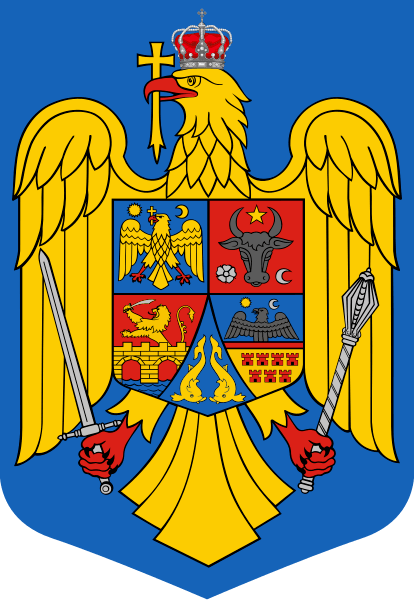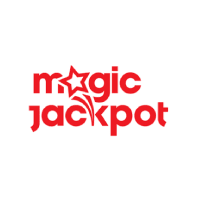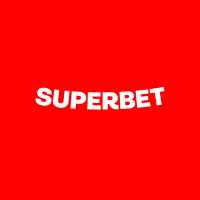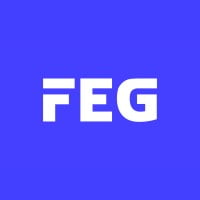- Information
- iGambling
- Blask
- prev
- next
Gambling regulation
-
Online casino:Regulated
-
Online sports betting:Regulated
-
Gambling in detail:
Population
- Population: 19053815 people.
- Official Language: Romanian
- HDI: 0,827
- Salary: $786
- Poverty rate: 10%
- Gini: 34.6%
- The believing population: 77%
- Main religion: Christianity (99.5%)
Harmful habits
- Alcohol: 11 litres/year
- Smoking: 28%
Internet
- Internet users: 64.9%
- Mobile Internet: 74.4%
- Landline Internet: 24.5%
- Internet speed: 36.9 Mbps
- Country Top Level Domain: .RO
General information about the country
-
Country name:Romania
-
Code (2-digit):RO
-
Continent:Europe
-
Country level:Tier 2
-
Capital:Bucharest
-
Country area:237500 sq km.
-
Telephone code:40
-
Currency (code):Lei (RON)
Geographical features of the country
Administrative division into regions
Judez (43): Alba, Arad, Ardjeş, Bacău, Bistrica-Năsăud, Bihor, Botoşani, Brasov, Braila, Buzău, Vaslui, Vrancea, Vrancea, Vulcea, Galati, Gorj, Giurgiu, Dolj, Dymbovica, Ilfov, Caras-Severin, Cluj, Covasna, Constanta, Calarasi, Maramures, Mehedintsi, Mures, Nemts, Olt, Prahova, Satu Mare, Sibiu, Suceava, Selage, Teleoman, Teleorman, Timis, Tulcea, Harghita, Hunedoara, Ialomitsa, Iasi.
Municipality: Bucharest.
Features of the country
The present-day territory of the country was partially or completely occupied by the following states: the Kingdom of Odris, the Kingdom of Pontus, the Roman Empire, Dacia, the Hun Empire, the Kingdom of Gepid, the Avar Kaganate, the First Bulgarian Kingdom, the Second Bulgarian Kingdom, the Principality of Galicia-Volhynia, the Mongol Empire, the Ottoman Empire, the Austro-Hungarian Empire, the German Empire.
Romania is washed by seas: the Black Sea.
Romania has access to the following lakes: Razelm.
The following rivers flow through the territory: Danube, Tisa, Prut, Siret, Tamish, Bega, Canagöl.
Mountains on the territory of the country: Moldoveanu.
Famous caves on the territory of the country: Vintului, Pipiul-Hodohahel, Topolnita Complex, Siur-Ponor-Toplita, Izvorul-Talsuare.
Gambling regulation
-
Online casinos:Regulated
-
Online sports betting:Regulated
Read more about regulation
The state has twice tried to legalize online gambling and it was only in 2015 that EU representatives approved laws for the sector.
Currently, online casinos and online sports betting are allowed in the country. The authorities' gambling policy aims to modernize the rules of responsible gaming.
With this in mind, the existing and proposed regulations for the industry are quite controversial.
A tax on winnings and a limit on player spending are unlikely to keep the player safe. It is highly likely that the user will move to illegal gambling sites where there are no restrictions.
The regulatory body of the industry is the National Office for Gambling (ONJN), subordinate to the Romanian Ministry of Finance
It should be noted that advertising of gambling on the Internet is allowed.
Top brands in the country
- Superbet
- Betano
- Fortune
- Winbet
- TotoGaming
- Unibet
- Netbet
- Maxbet
- Gets Bet
- 888 Casino
Top payment systems
- Visa
- MasterCard
- PayPal
- PayU
- EuPlatesc
- Stripe
- Revolut
Top slot machines
Top 3 favourite themes in slots (March 2024):
- fruit (21%)
- classics (17.2%)
- animals (17.1%)
Top game manufacturers (providers) (March 2024):
- EGT
- PragmaticPlay
- Greentube
Online Gambling in the country
The gambling industry in Romania has been taking shape over the last twenty-five years. During this time, the local government has issued several significant bills regarding the regulation of the sector.
Online casinos and online sports betting are allowed in the country, in which the country's residents have shown significant interest. One of the factors that contributed to the current development of the Romanian market was the 2020 European Football Championship. During the event, participation in online gambling increased by 90%.
Nevertheless, ludomania has gradually started to spread in the jurisdiction among teenagers, young adults and adults.
This year, as part of the fight against addiction, the authorities proposed limiting users' spending to 10% of their monthly income generated on the gambling platform.
In addition, late last year, the National Liberal Party (PNL) proposed a total ban on gambling advertising and said that voting against such initiatives could be considered hostile to Romanians.
Such potential laws and innovations for the legal industry create a favorable environment for illegal companies that can attract a significant number of Romanians to their side.
As a result, existing government policies, along with high operating costs for licensees, could completely weaken the legal sector.
Population: more than 19 million people. 55% of the inhabitants are urban dwellers.
National composition: Romanians 89.3%, Hungarians 6%, Roma 3.1%, Ukrainians 0.3%, Germans 0.1%, other ethnic groups 1.2%.
The average age is 43 years. The average life expectancy is 76 years.
Age distribution:
- 4.8% - 0 to 4 years old
- 8.6% - from 5 to 12 years old
- 5.7% - from 13 to 17 years
- 7.6% - from 18 to 24 years
- 10.8% - from 25 to 34 years old
- 13.7% - from 35 to 44 years old
- 15.6% - from 45 to 54 years old
- 13.1% - 55 to 64 years old
- 20.1% - 65 years and older
Male population - 51.6%, female population - 48.4%.
The literacy rate (ability to read and write) is 98.8%.
Language: The official language is Romanian, spoken by 91% of the population.
The majority of the population speaks English at an advanced level.
Approximately 80% of Romanians speak one foreign language, 25% speak two foreign languages and 4% speak three or more foreign languages.
Religion: 86.7% are Orthodox, 6.5% are Protestants, 5.6% are Catholics, 1.2% are Muslims, Jews, and atheists.
Major cities: Bucharest (capital), Constanta, Iasi, Cluj-Napoca, Timisoara.
Currency: Romanian leu (RON). 100 RON = 22 USD.
Financial opportunities
According to Eurostat data, one third of Romanians live in poverty or on the brink of poverty.
It is noteworthy that due to low wages and high costs, even those who work on a permanent basis face economic hardship in Romania. In addition, it has the widest gap between rich and poor citizens among EU countries.
The highest poverty rates were registered in the North-East and South-West regions, while the lowest were in Bucharest-Ilfova.
In February this year, the unemployment rate among men was 5.7% and among women 5.3%.
According to the Romanian Institute of Statistics, the youth unemployment rate reached 26.3% between October and December 2024.
The average pre-tax salary is from $1800. The minimum wage before tax deductions is from $850.
Most employers pay wages once at the end of the month or at the beginning of the next month.
Mentality
The culture and customs of Romanians have been influenced by Bulgarians, Ukrainians, Serbs and Roma. Their way of life and traditions are similar to other Romanian ethnogroups.
The name Romanians - “Romini” comes from the Latin word “romanus”, which means “Roman”. Medieval historians mention that Romanians considered themselves descendants of Romans, so they called themselves romani (Romans).
In communication the inhabitants are friendly and responsive. They gladly engage in conversation with strangers. Also in the country they react aggressively to direct criticism.
Romanians prefer to avoid conflicts, trying not to put others in an uncomfortable position. In communication, they tend to share personal information and expect the same from the interlocutor.
One of the characteristics of the population is the tendency to frequently express dissatisfaction on various issues, such as quality of life, social conditions and services provided by the state.
According to the Ipsos Global Trends report, young Romanians between 16 and 24 years old are more open to the world compared to other age groups, as 86% of them believe that people all over the globe have more in common than differences. They also believe that globalization is good for their country.
The inhabitants are quite superstitious. For example, Romanians try to avoid payments on Monday to avoid losing money during the week.
Athletes here are considered national heroes, especially if they represent the state in the international arena. Thus, if a Romanian plays in a German soccer team, the whole country believes that it was he who contributed to the existing success of the club.
Distribution of types of entertainment by popularity among the population:
- Sporting events
- Concerts and festivals
- Gambling
- Travel
Gambling status
Online casinos and online betting are allowed in the country.
Chronology of the formation of the legal gambling industry
- iGaming in Romania began to develop in the early 2000s.
- In 2010, the country introduced a comprehensive regulatory framework, defining the legal status of the industry
- Three years later, the industry's regulatory body, the National Office for Gambling (ONJN), subordinate to the Romanian Ministry of Finance, emerged
- In 2015, a new law on online gambling was introduced, which improved the license application process, strengthening player protection and operational principles
Requirements for operators to obtain a license for 10 years
- Companies must be residents of Romania, EU or EEA with an account in a Romanian bank. Money transactions may only be conducted through payment systems approved by the regulator
- The presence of a local authorized legal representative is required in the gambling organization
- Annual license fee for online casino and sports betting operators is $500 thousand
- GGR tax is 23% and must be at least $136k per year
- Operators are required to pay an annual responsible gaming fee of $5.7k
- Winnings up to $2279 are subject to a 3% tax, winnings up to $15.2k are subject to a 20% tax, and amounts over $15.2k are subject to a 40% tax
- There is an administrative tax of $170 per approval request for reviewing documentation related to the integration or re-certification of new online games
- Minimum authorized capital requirements depend on the type of games the company offers
Rules regarding players
- Users over 18 years of age are allowed to gamble
- Each player has the right to set daily, weekly and monthly deposit limits, as well as have the option to repay by the same method by which the account was originally funded
- Users have the right to delete their account for a day, for a certain period of time or permanently. When deleting an account permanently, the player will not be able to create a new one in the next six months
Restrictions for gambling and betting advertising by legal operators
- Gambling advertising on television is allowed from 11pm to 6am and during live sports broadcasts
- Outdoor gambling advertising with an area of less than 35 square meters is allowed.
- Sending gambling advertisements without prior consent of users and directed to an unlimited number of recipients is prohibited.
- Bonuses may be provided only on the official website of the operator or its partners, as well as in electronic messages to players with active accounts on the online platform, provided that the client has consented to receive them.
Note that gambling advertising on the Internet is permitted.
In addition, companies must pay a levy for the promotion of online casinos and/or sports betting in the amount of 5% of the amount of advertising contracts. This tax does not apply to agreements entered into by operators with sports organizations or federations that provide for advertising in stadiums or sports halls.
Recent developments in the gambling industry
In February 2025, the country's Court of Auditors accused the National Gambling Authority of failing to fulfill its duties to monitor and control the activities of operators since its establishment in 2013.
It was revealed that the state body did not have access to the servers of licensees, which allowed companies to understate earnings in reports and reduce the tax burden. According to the Court of Accounts, the undeclared license fees totaled nearly $1 billion between 2019 and 2023.
Also in March this year, Romanian authorities presented a bill that would prohibit players from spending more than 10% of gambling revenues earned in previous months.
Banks and financial institutions where users have individual accounts will be responsible for setting spending limits and could be fined up to 1% of turnover if they violate the potentially new rules.
In turn, gambling operators are required to report players' spending in real time so that they cannot beat the system by switching between online platforms.
The size of the iGaming market
The total market is projected to reach $1.06 billion by 2029.
According to the regulator, there are 1,489 unlicensed sites on the blacklist.
It is known that the average age of problem gamblers among young people is about 17 years old.
85.2% of young people have sought to return to gambling to recover lost money, while 20.4% have contemplated suicide due to gambling-related problems.
Top 10 popular iGaming brands:
- Superbet
- Betano
- Fortune
- Winbet
- TotoGaming
- Unibet
- Netbet
- Maxbet
- Gets Bet
- 888 Casino
Internet Availability: In January 2025, there were 17.8 million internet users in the country and the internet penetration rate was 94%.
The average speed of a wireless internet connection via Wi-Fi is 237.61 Mbps. The average speed of mobile internet connection is 76.58 Mbps.
Devices usage volume:
- mobile - 80%
- desktop - 16%
- tablet - 4%
Payment systems: Visa, MasterCard, PayPal, PayU, EuPlatesc, Stripe, Revolut.
Popular web applications: YouTube, eMAG, Facebook, TikTok, Instagram.
- YouTube - 13 million
- eMAG (marketplace) - 11 million
- Facebook - 9.9 million
- TikTok - 8.51 million
- Instagram - 5.45 million
Player portrait
The main part of users participating in gambling on a weekly basis are young Romanians between 18 and 24 years old.
Men are more prone to pathological gambling compared to women. Among these players, sports betting and slots are the most popular.
The main motive for participation in gambling is the desire to experience excitement, get vivid emotions, as well as “get out” of the daily routine. The financial aspect takes a secondary place.
Preferences
The most popular sport is soccer. In addition, residents are interested in cycling, handball, tennis, rugby and martial arts. A not insignificant share of bets falls on motorsports.
In online casinos, residents prefer slots and roulette. Also, most players choose the progressive jackpot of the network level.
Among card games, poker, rummy, blackjack, set and canasta are worth mentioning. Traditional card games include secret, classic solitaire, and barbut - a dice game.
Percentage share of gambling popularity:
- sports betting: 50%
- online casinos: 30%
- card games: 20%
The country's urban population shows a high interest in cryptocurrencies. For example, according to an Ipsos 2022 study, four out of ten Romanians owned cryptocurrencies and 84% planned to acquire it in the future. It was revealed that one in two Romanians had heard of NFTs and 21% said they owned them.
Recommendations for creatives
Residents are attracted by reasoned and realistic advertising. At the same time, it is recommended to convey the message that gambling is a completely different reality, where everyone can get a boost of positive emotions.
In order to succeed in the Romanian market, the brand should understand and maintain the desired social status of the customer. By doing so, the product demonstrates the rightness of the consumer's choice and makes them feel like the person they aspire to be, at least within the online space.
Many Romanians prefer to spend their time outdoors by biking or mountain hiking. This information should be used when creating contests in which, taking into account the interests of the population, you can raffle off tours to the mountains or other tourist destinations, as well as attributes and gadgets for sports.
Most of the youth in the country are into video games and follow streamers such as Selly, Ninja, mL7 and Roxana.
Some famous personalities of the jurisdiction are: INNA, Dorian Popa, Alina Eremia, Loredana Chivu, Theo Rose, Anda Adam, 444, Culita Sterp, Drei.
Players more often choose classic slots, especially fruit slots and those related to animal themes.
Also predominantly use fixed prizes, free and re-spins, bonuses for mobile app users.
Holidays such as Romanian National Day, Romanian Independence Day and Mărcisor - the meeting of spring should be taken into account when creating special promotions and draws to attract the attention of local residents.
A pronounced seasonality is relevant for Romania's ski resorts. The most famous of them include Sinaia, Predeal and Brasov. These towns attract crowds of tourists and Romanians in winter.
The symbols of the country are the golden eagle, the blue shield and the Dacian dragon.
Gambling affiliate programmes that accept traffic from this country
- Blask data from: 06/03/2025
- Population: 18,148,155 people.
- Population growth rate: -0.94% per year.
- Internet users: 16,151,857 people.
-
Urbanization:
Population — 54.7%
Urbanization — -0.15% -
Languages in the country:
Romanian — 91.6%
Hungarian — 6.3%
Romani — 1.2%
Other — 0.7%
-
Age structure:
0-14 years — 15.4%
15-64 years — 62%
65+ years — 22.6% -
Median age:
Total — 45.5
Male — 44
Female — 46.9 -
Literacy:
Total — 98.9%
Male — 99.1%
Female — 98.7%
-
Real GDP:
2021 — $727.999 billion
2022 — $756.867 billion
2023 — $775.064 billion -
Real GDP growth:
2021 — 5.71%
2022 — 3.97%
2023 — 2.4% -
Real GDP per capita:
2021 — $38,100
2022 — $39,700
2023 — $40,700
Blask Index
Top brands in the country
| Brands | BAP* |
|---|---|
| Superbet | 27,5 |
| Casa Pariurilor | 9,2 |
| Fortuna | 8,2 |
| Betano | 8,0 |
| Winbet | 5,3 |
| NetBet | 5,1 |
- The data for this section was provided by the analytical service Blask.com. Currently, the service's database contains information on 62 countries and more than 2,500 brands. You can view all available countries with Blask statistics at this link.
- Share
- prev
- next














